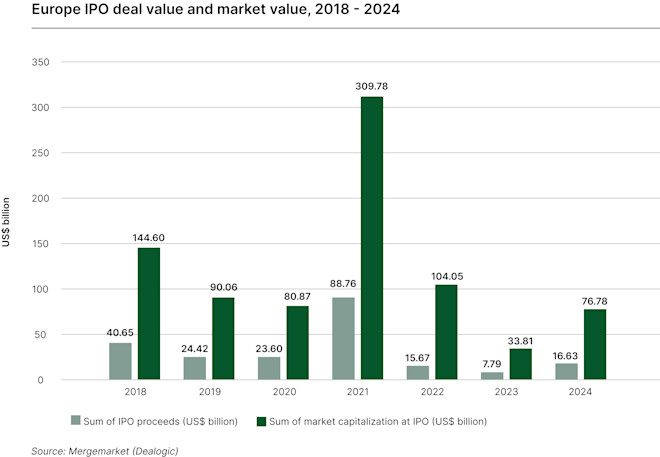What would it take for the next Klarna to IPO in Europe?
When Sebastian Siemiatkowski rings the bell at the New York Stock Exchange to take Klarna public, there will be a collective sigh across Europe’s capital markets. Once again, a European technology success story chooses to list in the US.
As an investor in Klarna, we support the decision - it makes sense. The US is one of Klarna’s largest markets, and for most, listing location makes little difference. But strong capital markets are vital to the broader ecosystem. We should aspire for the next Klarna to list in Europe - not out of sentiment, but because it’s the best place to do so. What would it take?
First, Europe needs a stronger culture of equity investing. Equity investing has proven over the long term to generate consistently higher returns than interest-bearing instruments, and is key to building long-term wealth and easing Europe’s looming pensions crisis. But there is a discrepancy across Europe; in the Nordics, 8 in 10 people save in equity related instruments; in Southern Europe, only 2 in 10.

European IPO deal value and market value, 2018 - 2024
Governments can also help here by providing tax incentives to encourage equity investing. The US 401k built a massive retail investor base over the past 40 years, and Sweden’s ISKs and the UK’s ISAs played similar roles. In our view, without widely available, government supported equity investing instruments, Europe is shackling its own growth potential and not letting the population participate in better savings products. Ideas like the Invest in America Act in the US are a perfect example of how government policy can drive innovation here, e.g. creating savings accounts for newborns, in which people - and companies - can contribute tax free funds.
Europe’s Pension funds should also allocate more to equities. Since the financial crisis in 2008, there has been a de-risking of the sector and a shift from return-seeking assets towards liability-matching assets like bonds. A more balanced allocation is needed, and thankfully we’re beginning to see regulation in some countries that will make this possible.
Finally, Europe must accelerate towards establishing a Capital Markets Union. We need harmonized listing rules across the different European exchanges to improve efficiency, and reduce friction in the IPO process to make it easier for companies to go public.
Fixing Europe’s capital markets would boost valuations, attract institutional capital, and recycle IPO gains into the next wave of innovation. From Mistral to Black Forest Labs, Lovable to Trade Republic, great companies are emerging in Europe. Let’s ensure that, when ready, a European listing is their best option.
